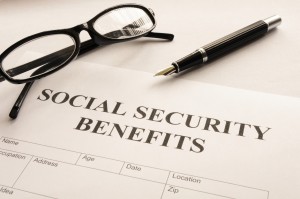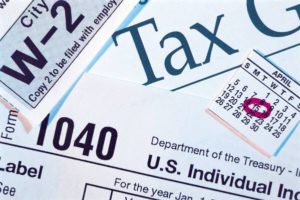Dear Liz: I am married and six months away from my full retirement age, which is 66. I have not filed yet. My wife started collecting Social Security at 62 but does not get very much. We are both in excellent health and have longevity in the genes. We don’t own a home. I have around $960,000 in diversified investments. I take out around $7,000 to $8,000 a month to meet my monthly expenses. Fortunately, the markets have been good, helping my portfolio, but I am not counting on that to continue at the same pace.
Doesn’t it make more sense to be taking less money out each month by starting Social Security now? I know I would receive less money than waiting until 66 or later, but between my check and the spousal benefit my wife could get, I would reduce my annual living expense withdrawals from my account by close to 50%. This would give my portfolio more opportunity to grow, since I will not be taking out so much every month.
I wish I could cut my expenses or could earn more income but cannot at this point. I am shooting for not taking more than 5% a year out of the portfolio going forward.
Answer: You’re right that something needs to change, because your withdrawal rate is way too high.
You’re currently consuming between 8.75% and 10% of your portfolio annually. Financial planners traditionally considered 4% to be a sustainable withdrawal rate. Any higher and you run significant risks of running out of money.
Some financial planning researchers now think the optimum withdrawal rate should be closer to 3%, especially for people like you with longevity in their genes. Chances are good that one or both of you will make it into your 90s, which means your portfolio may need to last three decades or more.
So even if you start Social Security now, you’ll need to reduce your expenses or earn more money to get your withdrawals down to a sustainable level.
Generally, it’s a good idea for the higher earner in a couple to put off filing as long as possible. The surviving spouse will have to get by on one Social Security check, instead of two, and it will be the larger of the two checks the couple received. Maximizing that check is important as longevity insurance, since the longer people live, the more likely they are to run through their other assets. Your check will grow 8% each year you can delay past 66, and that’s a guaranteed return you can’t match anywhere else. In many cases, financial planners will suggest tapping retirement funds if necessary to delay filing.
But every situation is unique. Your smartest move would be to consult a fee-only financial planner who can review your individual situation and give you personalized advice.
 Today’s top story: What the Fed rate hike means for your CDs. Also in the news: Steps to take if you don’t trust your spouse at tax time, 3 women you should know in investing, and 6 personal finance rules to live by in your 40s.
Today’s top story: What the Fed rate hike means for your CDs. Also in the news: Steps to take if you don’t trust your spouse at tax time, 3 women you should know in investing, and 6 personal finance rules to live by in your 40s.  Today’s top story: How to maximize your Priority Pass Select. Also in the news: Tap your credit cards for spring break savings, how to avoid a spring break money hangover, and why the death of the fiduciary rule is bad news for your retirement.
Today’s top story: How to maximize your Priority Pass Select. Also in the news: Tap your credit cards for spring break savings, how to avoid a spring break money hangover, and why the death of the fiduciary rule is bad news for your retirement. Today’s top story: 7 places to get a slice of savings on Pi Day. Also in the news: Choosing between a Roth 401(k) and a Roth IRA, guarding your cash from debit card fraud, and credit bureaus may get a boost from Congress.
Today’s top story: 7 places to get a slice of savings on Pi Day. Also in the news: Choosing between a Roth 401(k) and a Roth IRA, guarding your cash from debit card fraud, and credit bureaus may get a boost from Congress. Today’s top story: 5 pieces of popular tax advice that are actually baloney. Also in the news: VW aims to plug into nostalgia with the electric bus, Social Security is underpaying thousands of widows and widowers, and 33% of Americans don’t have more savings than credit card debt.
Today’s top story: 5 pieces of popular tax advice that are actually baloney. Also in the news: VW aims to plug into nostalgia with the electric bus, Social Security is underpaying thousands of widows and widowers, and 33% of Americans don’t have more savings than credit card debt.  Today’s top story: Before doing your taxes, gather these documents. Also in the news: 3 things to do when buying a house as an unmarried couple, how credit cards can help you save on buses and trains, and 4 money lessons every teenager needs to know.
Today’s top story: Before doing your taxes, gather these documents. Also in the news: 3 things to do when buying a house as an unmarried couple, how credit cards can help you save on buses and trains, and 4 money lessons every teenager needs to know.  Today’s top story: 7 questions to ask before you hire a tax professional. Also in the news: The security of your hotel’s mobile room key, side hustles you can start with no money, and how to pay off student debt while still saving and investing.
Today’s top story: 7 questions to ask before you hire a tax professional. Also in the news: The security of your hotel’s mobile room key, side hustles you can start with no money, and how to pay off student debt while still saving and investing. Today’s top story: Whittle down your debt while having bad credit. Also in the news: 6 secrets from flight crews to stave off jet lag, what to buy every month of the year in 2018, and 3 ways you can better save for retirement.
Today’s top story: Whittle down your debt while having bad credit. Also in the news: 6 secrets from flight crews to stave off jet lag, what to buy every month of the year in 2018, and 3 ways you can better save for retirement.  Today’s top story: Will your taxes go up or down under the new tax rules? Also in the news: Freezing your child’s credit, 3 safe, easy ways to gift money for the holidays, and how much you should have saved at every age.
Today’s top story: Will your taxes go up or down under the new tax rules? Also in the news: Freezing your child’s credit, 3 safe, easy ways to gift money for the holidays, and how much you should have saved at every age.